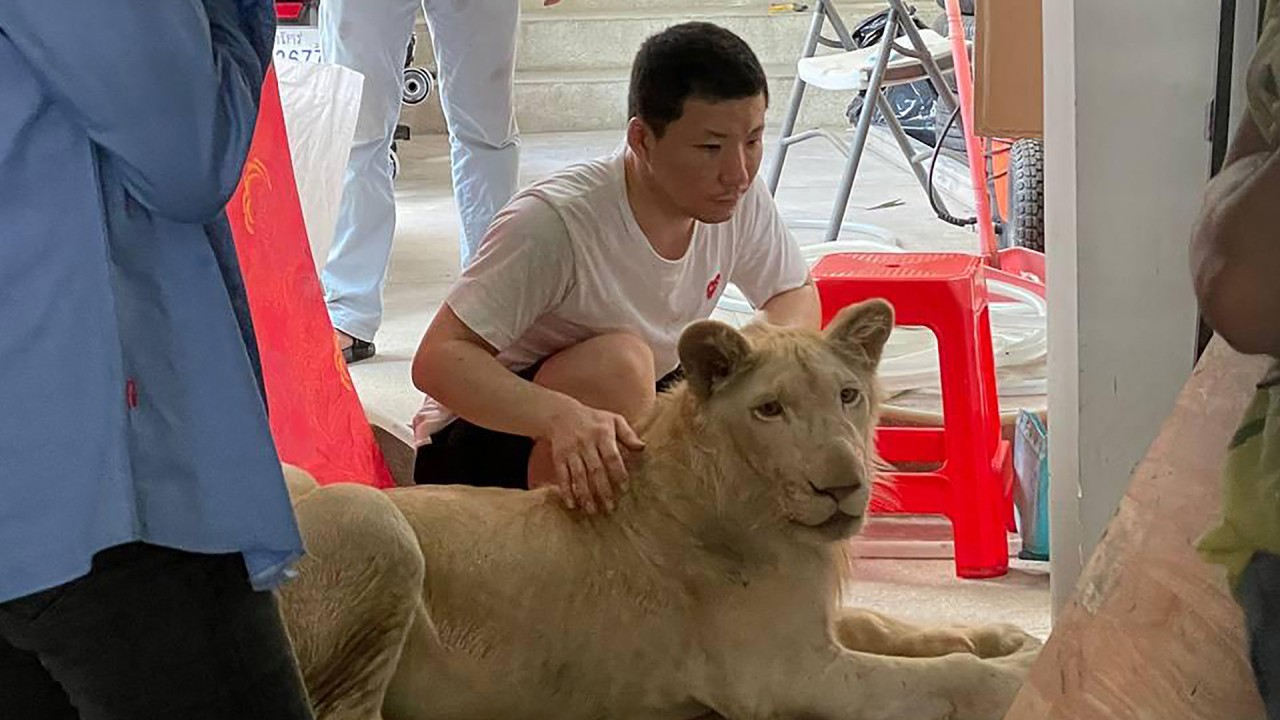Chinese national’s TikTok lion spotlights Cambodia’s exotic pet problem
- Cambodia does not explicitly ban residents from owning non-native species, and knowledge of what animals should be protected is lacking, observers said
- A week after the lion’s confiscation, Prime Minister Hun Sen reacted to sympathetic social media posts by saying the animal would be returned to its owner

01:18
Pet lion confiscated by Cambodian police after Chinese owner shared TikTok video
Forestry Administration Director General Keo Omaliss told This Week In Asia that his agency had never before dealt with lions, which are not native to Cambodia.
“It’s very scary to see a lion running around Phnom Penh,” he said, explaining that the animal was likely brought into the country while still a young cub because “if it’s very small … you don’t know if it’s a dog or whatever.”
The authorities work with conservation NGOs to crack down on the wildlife trade in Cambodia about once per month, Omaliss said, with birds, turtles and pigs being among the most common seizures – alongside the occasional sun bear, captured from the nation’s forests. “If we find a rare species, we react very quickly,” he said.
